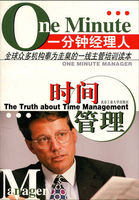Sensation, as the real in perception, where referred to knowledge, is called organic sensation and its specific quality may be represented as completely communicable to others in a like mode, provided we assume that every one has a like sense to our own.This, however, is an absolutely inadmissible presupposition in the case of an organic sensation.Thus a person who is without a sense of smell cannot have a sensation of this kind communicated to him, and, even if be does not suffer from this deficiency, we still cannot be certain that he gets precisely the same sensation from a flower that we get from it.But still more divergent must we consider men to be in respect of the agreeableness or disagreeableness derived from the sensation of one and the same object of sense, and it is absolutely out of the question to require that pleasure in such objects should be acknowledged by every one.Pleasure of this kind, since it enters into the mind through sense-our role, therefore, being a passive one-may be called the pleasure of enjoyment.
On the other hand, delight in an action on the score of its moral character is not a pleasure of enjoyment, but one of self-asserting activity and in this coming up to the idea of what it is meant to be.But this feeling, which is called the moral feeling, requires concepts and is the presentation of a finality, not free, but according to law.It, therefore, admits of communication only through the instrumentality of reason and, if the pleasure is to be of the same kind for everyone, by means of very determinate practical concepts of reason.
The pleasure in the sublime in nature, as one of rationalizing contemplation, lays claim also to universal participation, but still it presupposes another feeling, that, namely, of our supersensible sphere, which feeling, however obscure it may be, has a moral foundation.But there is absolutely no authority for my presupposing that others will pay attention to this and take a delight in beholding the uncouth dimensions of nature (one that in truth cannot be ascribed to its aspect, which is terrifying rather than otherwise).
Nevertheless, having regard to the fact that attention ought to be paid upon every appropriate occasion to this moral birthright, we may still demand that delight from everyone; but we can do so only through the moral law, which, in its turn, rests upon concepts of reason.
The pleasure in the beautiful is, on the other hand, neither a pleasure of enjoyment nor of an activity according to law, nor yet one of a rationalizing contemplation according to ideas, but rather of mere reflection.Without any guiding-line of end or principle, this pleasure attends the ordinary apprehension of an object by means of the imagination, as the faculty of intuition, but with a reference to the understanding as faculty of concepts, and through the operation of a process of judgement which bas also to be invoked in order to obtain the commonest experience.In the latter case, however, its functions are directed to perceiving an empirical objective concept, whereas in the former (in the aesthetic mode of estimating) merely to perceiving the adequacy of the representation for engaging both faculties of knowledge in their freedom in an harmonious (subjectively final) employment, i.e., to feeling with pleasure the subjective bearings of the representation.This pleasure must of necessity depend for every one upon the same conditions, seeing that they are the subjective conditions of the possibility of a cognition in general, and the proportion of these cognitive faculties which is requisite for taste is requisite also for ordinary sound understanding, the presence of which we are entitled to presuppose in every one.And, for this reason also, one who judges with taste (provided he does not make a mistake as to this consciousness, and does not take the matter for the form, or charm for beauty) can impute the subjective finality, i.e., his delight in the object, to everyone else and suppose his feeling universally communicable, and that, too, without the mediation of concepts.
SS 40.Taste as a kind of sensus communis.
The name of sense is often given to judgement where what attracts attention is not so much its reflective act as merely its result.So we speak of a sense of truth, of a sense of propriety, or of justice, etc.And yet, of course, we know, or at least ought well enough to know, that a sense cannot be the true abode of these concepts, not to speak of its being competent, even in the slightest degree, to pronounce universal rules.On the contrary, we recognize that a representation of this kind, be it of truth, propriety, beauty, or justice, could never enter our thoughts were we not able to raise ourselves above the level of the senses to that of higher faculties of cognition.Common human understanding which as mere sound (not yet cultivated) understanding, is looked upon as the least we can expect from any one claiming the name of man, has therefore the doubtful honour of having the name of common sense (sensus communis) bestowed upon it; and bestowed, too, in an acceptation of the word common (not merely in our own language, where it actually has a double meaning, but also in many others) which makes it amount to what is vulgar-what is everywhere to be met with-a quality which by no means confers credit or distinction upon its possessor.















